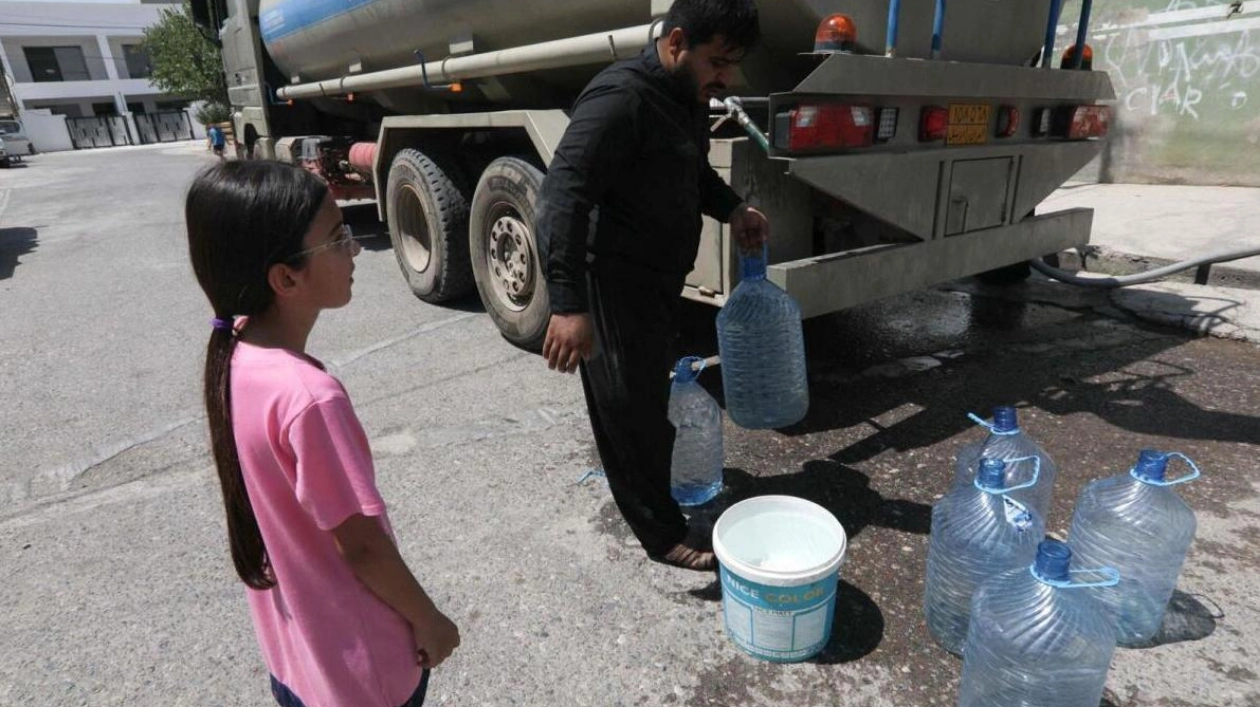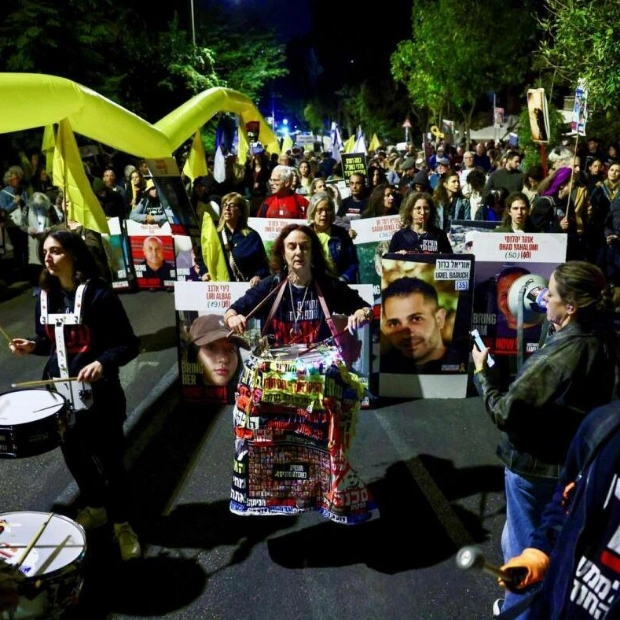The faucets have ceased flowing, and the wells are nearly depleted. In the capital of Iraq's autonomous Kurdistan region, 80-year-old Babir has not bathed for weeks and eagerly awaits water deliveries by truck. "Nothing is worse than lacking water," said Babir, who provided only his first name, from his humble home in Arbil's Darto suburb. Similar to other densely populated areas in Arbil and its surroundings, Babir and his neighbors depend on groundwater as their main water source. However, they have long feared summer, when severe drought, insufficient wells, and power failures that disable pumps leave them without water. For all purposes, from bathing to watering plants, cooking, and cleaning, they must rely on water brought by trucks. Typically, "we bathe once every two weeks," Babir explained, wearing traditional Kurdish sarwal trousers. From his rooftop, he called out to a water truck as it approached the street, then rushed downstairs to request a refill for his home. On this occasion, the truck was operated by a local aid group. When such aid is not available, the retiree must use his small pension or depend on family for water and other necessities. Over the years, residents of several districts have protested in the streets demanding solutions, but Babir noted that appeals to officials have gone unanswered. He is contemplating moving "to a place with water." Iraq, known in Arabic as the Land of the Two Rivers, referring to the once-mighty Tigris and Euphrates, now sees its rivers' water levels drastically reduced, with the UN classifying the country as one of the most affected by certain climate change impacts. Authorities attribute the situation to drought and dams constructed upstream in neighboring Turkey and Iran. Arbil depends on 1,240 wells spread across the city and the Ifraz water station that draws from the upper Zab River, which originates in Turkey and merges with the Tigris in Iraq. The governor of Arbil, Omed Khoshnaw, recently informed reporters that "over 25 percent of wells have dried up this year," suggesting that Arbil should reduce its reliance on groundwater. In response to the crisis, local authorities have allocated 1.5 billion Iraqi dinars ($1.1 million) to address the issue, including by drilling new wells and ensuring power supply via generators and the electricity grid. Local official Nabz Abdul Hamid stated that power outages have significantly affected well pumps in residential areas. "We have now ensured an uninterrupted electricity supply to most of the wells," he told AFP, noting that efforts are underway to resolve broader issues, including enhancing the Ifraz plant's supply. In the Darto district, an individual expertly controlled the aid truck's hose as a stream of water filled a tank. A young girl waited to fill plastic bottles while other children happily splashed water on their faces, finding respite from the intense heat. However, for washing, Surur Mohamad, 49, goes to a nearby village where there is a consistent water supply. He believes that water from aid organizations "is not a solution," noting that overcrowding and poor pipe infrastructure have worsened the water situation. "The government must find fundamental solutions as relying solely on wells" is no longer feasible, especially given the drought, he said. His neighbor, Mahya Najm, mentioned that the lack of water has deterred her children and young families from visiting. "We cannot wash, cook, or even receive guests," she said. "We desperately need water. This is not a life," she added.

Text: Lara Palmer
12.08.2024
Residents of Arbil and its suburbs face severe water shortages, relying on aid and trucked-in water.





